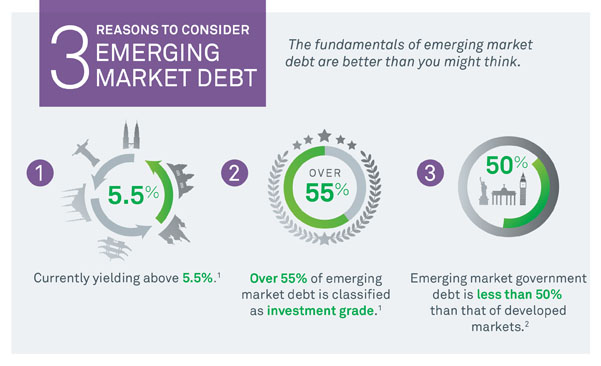
Forex trading requires you to follow certain risk management principles. These principles include Leverage, Stop Loss Orders, Position Sizing, and managing your emotions. Forex risk management should not go unattended. Traders must take control of the process to maximize its potential benefits. These rules are not clear? Continue reading for tips to help you make forex trading profitable.
Leverage
It is important to understand the role of leverage in managing forex risk. Leverage is the use of small amounts to manipulate large markets. Leveraging leverage to your advantage may increase your profits or decrease your losses. Leverage can have its limitations. You will most likely lose money, rather than make more, if you don’t grasp this concept. To make wise decisions about using leverage, you'll need to assess your level of risk appetite. For professionals with experience, higher leverage ratios may be acceptable. But for new traders, you'll want to start out with a smaller amount of leverage, with lower profits and fewer risks.
Leverage has increased exponentially over the past decade. Back in 1980s, traders needed Lombard loans to finance their trading operations. Securities were used as collateral. Today retail brokers can offer traders very high leverage ratios. Some offer up 500:1 leverage. This is far from what investors did 30 years ago. Leverage allows you to trade more and in assets that you might not otherwise be able. However, leverage can also expose you to market volatility.

Stop loss orders
In addition to their importance in managing risk in forex trading, stop orders are also a great way to protect your capital. Without a stop order, you are vulnerable to the 'just one more trade' bias, where you might believe a turnaround is imminent, but you didn't. You have an extra line of defense and can close your trade if it reaches your maximum loss. Furthermore, with a guaranteed stop, you don't have to worry about slippage.
A trader's risk management program should include stop loss orders. They can automatically close a trade, even if the trader doesn't want it to. Stop loss orders play a crucial role in risk management. They also help to determine your reward/risk ratio. Stop loss orders are also used to determine the size of your positions, which is a crucial consideration in order to trade successfully. You can only afford to lose 10% of your account so you will need to place a stop loss or order.
Position sizing
Forex traders need understand that position sizing, which is one of the most important tools to manage their risks, is crucial. It's about more than avoiding losses on single trades. A sound risk management strategy will also keep traders focused on the overall account, rather than on individual trades. In short-term traders, who are often quick to react and don't always have time to evaluate their risk, may neglect to control their risk. A forex risk management plan is essential.
This method involves determining a fixed percentage of the capital on each trade. This way, you limit the amount of risk you'll take on each trade and preserve your capital in the case of a loss. The majority of experienced traders recommend a trade risk of between one and two percent. Although this risk is very small, it's important you keep in mind that any loss may only affect a fraction of your entire account. To avoid excessive losses, keep your risk level within this range.

Controlling your emotions
It is important to manage your emotions when you trade forex. It is crucial to take regular breaks, especially if things don't go according plan. By doing so, you will prevent yourself from piling on more trades. Emotional trading can cause huge losses. Be smart about risk management and avoid trading on emotions. These tips will help you control your emotions while trading forex. Read on to learn more. Para: Avoid trading when you're feeling gloomy or angry. Instead, take a vacation.
Forex markets are full of volatility, which makes it easy to get lost and make poor decisions. Traders must realize that they cannot afford to lose more than a portion of their total capital. A negative mindset and excessive trading can result in losses. It's important to keep these emotions in check by adhering to concrete trading rules. Keep a trading journal to help you manage your emotions when forex trading.
FAQ
What are the advantages of investing through a mutual fund?
-
Low cost - Buying shares directly from a company can be expensive. It is cheaper to buy shares via a mutual fund.
-
Diversification - most mutual funds contain a variety of different securities. The value of one security type will drop, while the value of others will rise.
-
Professional management - professional managers make sure that the fund invests only in those securities that are appropriate for its objectives.
-
Liquidity – mutual funds provide instant access to cash. You can withdraw your money at any time.
-
Tax efficiency - Mutual funds are tax efficient. As a result, you don't have to worry about capital gains or losses until you sell your shares.
-
Purchase and sale of shares come with no transaction charges or commissions.
-
Mutual funds are simple to use. All you need is a bank account and some money.
-
Flexibility: You have the freedom to change your holdings at any time without additional charges.
-
Access to information- You can find out all about the fund and what it is doing.
-
Investment advice – you can ask questions to the fund manager and get their answers.
-
Security - you know exactly what kind of security you are holding.
-
You have control - you can influence the fund's investment decisions.
-
Portfolio tracking: You can track your portfolio's performance over time.
-
Easy withdrawal - You can withdraw money from the fund quickly.
Investing through mutual funds has its disadvantages
-
Limited choice - not every possible investment opportunity is available in a mutual fund.
-
High expense ratio. The expenses associated with owning mutual fund shares include brokerage fees, administrative costs, and operating charges. These expenses can reduce your return.
-
Lack of liquidity - many mutual funds do not accept deposits. They must be bought using cash. This limits the amount of money you can invest.
-
Poor customer service - there is no single contact point for customers to complain about problems with a mutual fund. Instead, you should deal with brokers and administrators, as well as the salespeople.
-
Risky - if the fund becomes insolvent, you could lose everything.
Why is a stock called security?
Security refers to an investment instrument whose price is dependent on another company. It can be issued by a corporation (e.g. shares), government (e.g. bonds), or another entity (e.g. preferred stocks). The issuer promises to pay dividends and repay debt obligations to creditors. Investors may also be entitled to capital return if the value of the underlying asset falls.
How do you invest in the stock exchange?
Brokers are able to help you buy and sell securities. A broker buys or sells securities for you. Brokerage commissions are charged when you trade securities.
Brokers usually charge higher fees than banks. Banks offer better rates than brokers because they don’t make any money from selling securities.
A bank account or broker is required to open an account if you are interested in investing in stocks.
If you are using a broker to help you buy and sell securities, he will give you an estimate of how much it would cost. The size of each transaction will determine how much he charges.
Ask your broker about:
-
To trade, you must first deposit a minimum amount
-
Are there any additional charges for closing your position before expiration?
-
What happens if your loss exceeds $5,000 in one day?
-
how many days can you hold positions without paying taxes
-
How you can borrow against a portfolio
-
Whether you are able to transfer funds between accounts
-
How long it takes to settle transactions
-
the best way to buy or sell securities
-
How to Avoid Fraud
-
how to get help if you need it
-
How you can stop trading at anytime
-
If you must report trades directly to the government
-
Reports that you must file with the SEC
-
whether you must keep records of your transactions
-
What requirements are there to register with SEC
-
What is registration?
-
How does this affect me?
-
Who should be registered?
-
What time do I need register?
What are some advantages of owning stocks?
Stocks can be more volatile than bonds. The value of shares that are bankrupted will plummet dramatically.
However, share prices will rise if a company is growing.
For capital raising, companies will often issue new shares. Investors can then purchase more shares of the company.
To borrow money, companies use debt financing. This allows them to borrow money cheaply, which allows them more growth.
Good products are more popular than bad ones. The stock's price will rise as more people demand it.
As long as the company continues producing products that people love, the stock price should not fall.
How are shares prices determined?
The share price is set by investors who are looking for a return on investment. They want to make profits from the company. So they buy shares at a certain price. Investors will earn more if the share prices rise. The investor loses money if the share prices fall.
Investors are motivated to make as much as possible. This is why they invest. This allows them to make a lot of money.
Statistics
- The S&P 500 has grown about 10.5% per year since its establishment in the 1920s. (investopedia.com)
- Ratchet down that 10% if you don't yet have a healthy emergency fund and 10% to 15% of your income funneled into a retirement savings account. (nerdwallet.com)
- Our focus on Main Street investors reflects the fact that American households own $38 trillion worth of equities, more than 59 percent of the U.S. equity market either directly or indirectly through mutual funds, retirement accounts, and other investments. (sec.gov)
- US resident who opens a new IBKR Pro individual or joint account receives a 0.25% rate reduction on margin loans. (nerdwallet.com)
External Links
How To
How can I invest my money in bonds?
An investment fund is called a bond. The interest rates are low, but they pay you back at regular intervals. These interest rates are low, but you can make money with them over time.
There are many ways you can invest in bonds.
-
Directly buy individual bonds
-
Buy shares of a bond funds
-
Investing via a broker/bank
-
Investing through financial institutions
-
Investing in a pension.
-
Invest directly through a stockbroker.
-
Investing in a mutual-fund.
-
Investing through a unit-trust
-
Investing in a policy of life insurance
-
Private equity funds are a great way to invest.
-
Investing using an index-linked funds
-
Investing in a hedge-fund.